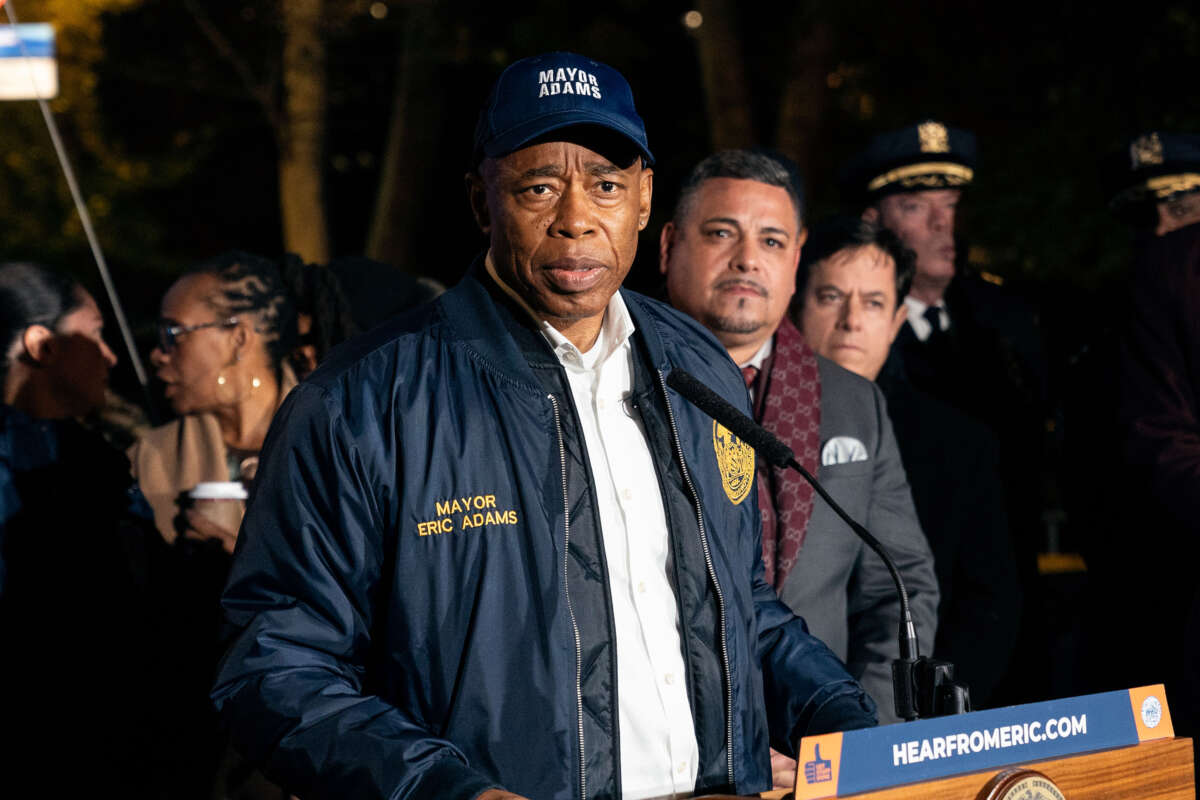The New York City Council approved two measures on Wednesday that would largely ban solitary confinement in city jails and require New York City Police Department (NYPD) officers to report low-level street stops.
While New York City mayor Eric Adams has publicly objected to the bills, the measures were overwhelmingly approved with a veto-proof majority.
“Solitary confinement does not produce safety; not for people in detention, not for correction officers, and not for the general public,” the Vera Institute of Justice said in a statement. “Ending the practice is in the interest of the well-being and humane treatment of all people, whether in our jails or our wider communities.”
In 2020, a UN human rights expert declared that prolonged solitary confinement practices in the U.S. amount to psychological torture. Bill 549A places a four-hour limit on this practice and has been praised by advocates who say that the solitary confinement ban will reduce the psychological damage incarcerated people face in detainment.
“VICTORY! A large veto-proof NYC Council supermajority (39-7) passed Int 549A to end solitary confinement,” the #HALTsolitary Campaign said on social media. “Today’s vote was for Kalief, Layleen, Brandon, Elijah, Erick, Jason, Bradley, & so many others who lost their lives to solitary.”
Sixteen-year-old Kalief Browder was imprisoned at Rikers Island and placed in solitary confinement for two of the three years he was incarcerated before the charges were dismissed. After being released, he died by suicide in part due to the psychological harm he suffered at Rikers. In 2019, the family received $3.3 million in a settlement with the city.
“The jails have been imposing various forms of solitary confinement by many different names for far too long, causing immense suffering and harm, taking countless lives, and worsening safety for everyone in the jails and after people come home,” said Jerome Wright, a co-director of the #HALTsolitary campaign.
In another case, in 2021, 25-year-old Brandon Rodriguez died while in segregation at Rikers. His mother, Tamara Carter, celebrated the vote ending solitary confinement. “Amen Brandon, we did it,” Carter said, according to the Gothamist. “Mommy made sure no one will ever suffer like you did.”
The other bill passed on Wednesday, the “How Many Stops Act,” mandates that the NYPD report on every single pedestrian stop made, including the demographic information of the person pulled aside, the reason for the encounter, and whether the encounter led to any enforcement action. Advocates say that the NYPD’s stop-and-frisk tactic disproportionately affects Black and Brown New Yorkers and that the “How Many Stops Act” will make it easier to hold the police accountable for unlawful stops and searches.
“By passing the How Many Stops Act, the City Council is advancing police transparency, helping to expose abusive and discriminatory conduct, and moving us closer to police accountability,” Donna Lieberman, executive director of the ACLU of New York, said in a statement.
A June report published by a federal monitor overseeing the NYPD’s pedestrian stops found that between April and October 2022, 97 percent of the pedestrians pulled aside were Black and Latinx, and 24 percent of the encounters were unconstitutional.
“With stop-and-frisk at its highest point since 2015 and Black and Latinx New Yorkers accounting for an excessively disproportionate number of police stops, we can no longer allow the NYPD to be the sole arbiter of which stops they report on and which stops they do not,” Communities United spokesperson Chauvet Bishop said in a statement. “The reality is, especially for New Yorkers of color, all police stops are disruptive, scary, and could easily escalate to abuse and brutality.”
Our most important fundraising appeal of the year
December is the most critical time of year for Truthout, because our nonprofit news is funded almost entirely by individual donations from readers like you. So before you navigate away, we ask that you take just a second to support Truthout with a tax-deductible donation.
This year is a little different. We are up against a far-reaching, wide-scale attack on press freedom coming from the Trump administration. 2025 was a year of frightening censorship, news industry corporate consolidation, and worsening financial conditions for progressive nonprofits across the board.
We can only resist Trump’s agenda by cultivating a strong base of support. The right-wing mediasphere is funded comfortably by billionaire owners and venture capitalist philanthropists. At Truthout, we have you.
We’ve set an ambitious target for our year-end campaign — a goal of $250,000 to keep up our fight against authoritarianism in 2026. Please take a meaningful action in this fight: make a one-time or monthly donation to Truthout before December 31. If you have the means, please dig deep.
